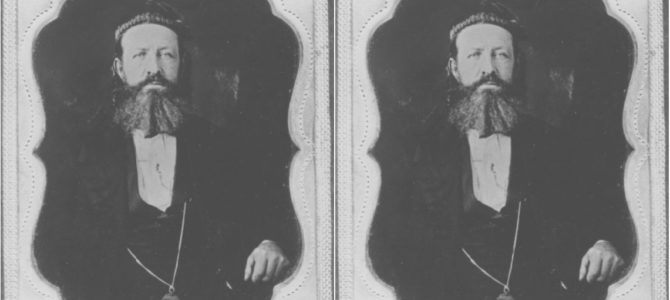by Michael Medved
Israel’s contemporary critics angrily insist that the special relationship between America and the Jewish state stems solely from the outsize electoral and economic clout of American Jews. But those who argue that this undue influence has always shaped our policies in the Middle East ignore the fact that the commitment to a rebuilt Jerusalem and a reborn Israel began at a time when the Republic’s Jewish community played an insignificant role in national life, with a minimal population amounting to far less than 1 percent of the federal total. In fact, the idea that the United States ought to link its fate to a Jewish state officially originated in 1844 with the very first diplomat America ever dispatched to Jerusalem, more than a century before Israel’s Declaration of Independence. His name was Warder Cresson, and he led an extraordinary and singular American life.
Cresson’s own Huguenot forebears first came to the New World from Holland in 1657, settling in Delaware and New York. After some adventures in the West Indies, his grandfather Solomon found his way to Philadelphia, where he became an ardent member of the Society of Friends and part of the new city’s Quaker establishment. As successful artisans and entrepreneurs, the Cressons owned prime real estate on Chestnut Street in the center of town as well as valuable agricultural properties in the surrounding countryside.
Born in 1798, Cresson began working the family farms in nearby Darby and Chester counties at age 17, impressing relatives and neighbors with his business and leadership abilities. Married at 23 to another devout Quaker, he proceeded to raise six children of his own and to follow the clan’s pattern of judicious investment and accumulation of wealth.
Full story here.


